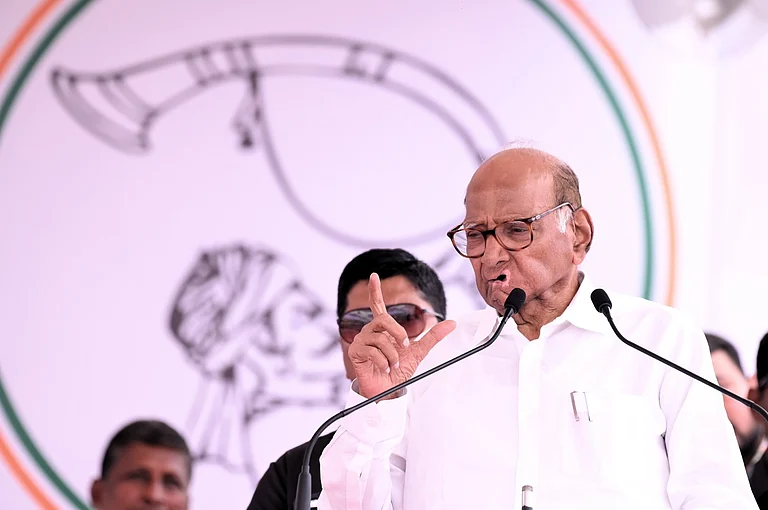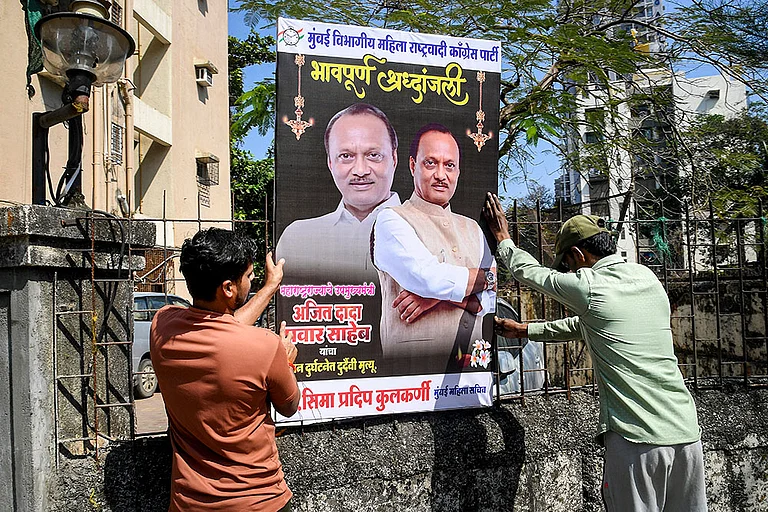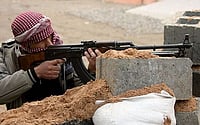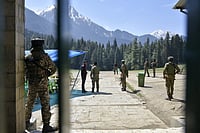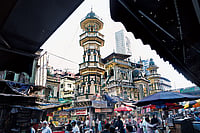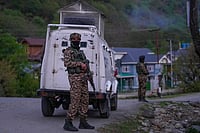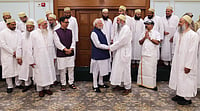The parliament has representation from all sections of society, the marginalised tribes, backward castes, and women and special seats for artists, sportspersons, and philanthropists so why not the queer community, asks politician Priya Patil, head of the LGBTQ cell -- -- the first such political initiative in the country belonging to the Sharad Pawar-led Nationalist Congress Party.
Patil joined the NCP in 2019 as a member of its working committee becoming the first openly queer politician to be nominated as an office bearer of a mainstream political party in Maharashtra. In 2020, MP Supriya Sule launched the party’s LGBTQIA cell in Mumbai, appointing Patil as the chief.
“The cell was formed so that the party can address social and governance issues specifically related to the LGBTQIA community,” Patil said. She has recruited 300 members of the queer community across Maharashtra in the party’s LGBTQIA cell.
The Supreme Court struck section 377 and decriminalised homosexuality, members of the LGBTQIA+ do not have the right to officially register marriages or adopt children. The NCP (SP) faction aims to change this discrimination by initiating a discussion and introducing legislation in the Parliament.
In 2022, Patil helped Sule draft the private member’s bill on marriage equality by legalising marriage between same-sex couples. The bill proposed amending the Special Marriage Act, of 1954, to grant legal recognition to married LGBTQIA couples.
While politicians and judges are adept at drafting laws, she feels the queer community must be directly involved in matters of policy-making to safeguard the communities' interests and legal rights. For instance, members of transgender community face discrimination to rent and buy house, gain employment in formal sector and socialise in public places. “The problems of the queer community are different from the heterosexual majority and we must be consulted to draft the right policies and involved in their implementation,” she said.
Among the larger umbrella of the LGBTQIA, the transgenders are most visible in the public domain. The 2011 census, recorded 488,000 trans individuals, although revised estimates are likely to be much higher. Patil says the community is at rock bottom, as they are ostracised by the family and outcasted in society. “We can’t lead a normal life as people don’t accept us the way we are. Even when we don’t wish to, we are forced to beg and do sex work, in order to survive.”
Patil who was born male, came out to her family about her trans identity when she was just a teenager. The confession made her homeless and an orphan on the same day. She was quietly shunted out of the house and found herself living on the platform of Virar railway station, scared and confused about her identity. Months later she found support from the hijra/kinnar community and a guru who adopted and raised her. Patil resumed studies in college, completed her master's in political science and psychology and trained as a social worker. She worked with NGOs working for the health and welfare of transgender but realised that the community’s real upliftment can happen only with the government’s help. “Social work through NGOs has limitations. You can only do so much. If you want to make the change, then you must enter the system. I thought why not enter politics.”
She contested the civic elections in 2017 from Kurla and lost against candidates from mainstream parties, but the experience brought her close to the reality of becoming a politician one day. After she joined the NCP, it occurred to Patil that members and workers from the party, as well as from other political organisations looked at her with the stereotype label of kinnar. “The only way they have seen transgenders is as beggars or dancers who take money and give blessings. They were not willing to consider that I could be as politically mature as them,” she rued.
Continuous meetings and interactions have changed the way she is addressed and viewed in political circles, but Patil feels there’s still a long way to start a real dialogue on inclusivity and gender identity politics.
Besides NCP, the Bhartiya Janata Party, Aam Aadmi Party, Samajwadi Party, Bahujan Samaj Party AIADMK have transgender members. Although political parties have stayed away from representing issues of the queer community and mentioning them in election manifestos, several transgenders have contested elections and even held offices candidates in state assembly and municipal bodies. Shabnam Mausi, became the first transgender person in 2000, to be elected as an MLA in the Madhya Pradesh legislative assembly.
Patil however, noted that the country’s political landscape remains dominated by male leaders majority of whom are greying senior citizens. The older generation of politicians hailing from the rural belt where patriarchal rules determine social and political norms are far from being aware of multitudes of sexual orientations and gender construction, she said. “There is no awareness among the politicians on who or what is LGBTQIA so how can they make policies about our rights? This can be only done when we have a presence in the parliament and state assemblies.”







